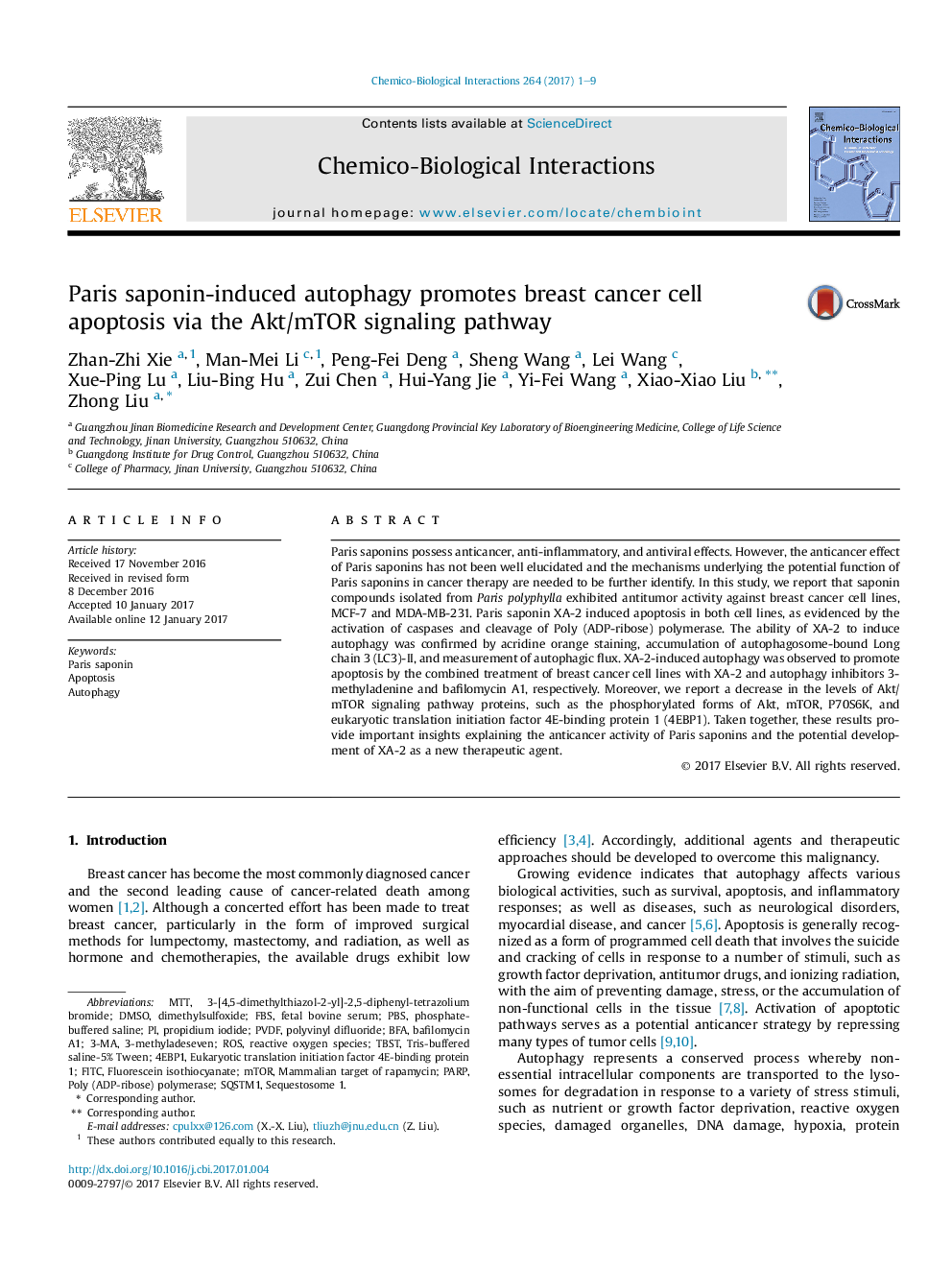| Article ID | Journal | Published Year | Pages | File Type |
|---|---|---|---|---|
| 5559445 | Chemico-Biological Interactions | 2017 | 9 Pages |
â¢Paris saponins exhibit antitumor activity against breast cancer cell lines.â¢Paris saponin XA-2 induces apoptosis in breast cancer cell lines.â¢XA-2 induces autophagy via the Akt/mTOR signaling pathway.â¢XA-2-induced autophagy promotes apoptosis.
Paris saponins possess anticancer, anti-inflammatory, and antiviral effects. However, the anticancer effect of Paris saponins has not been well elucidated and the mechanisms underlying the potential function of Paris saponins in cancer therapy are needed to be further identify. In this study, we report that saponin compounds isolated from Paris polyphylla exhibited antitumor activity against breast cancer cell lines, MCF-7 and MDA-MB-231. Paris saponin XA-2 induced apoptosis in both cell lines, as evidenced by the activation of caspases and cleavage of Poly (ADP-ribose) polymerase. The ability of XA-2 to induce autophagy was confirmed by acridine orange staining, accumulation of autophagosome-bound Long chain 3 (LC3)-II, and measurement of autophagic flux. XA-2-induced autophagy was observed to promote apoptosis by the combined treatment of breast cancer cell lines with XA-2 and autophagy inhibitors 3-methyladenine and bafilomycin A1, respectively. Moreover, we report a decrease in the levels of Akt/mTOR signaling pathway proteins, such as the phosphorylated forms of Akt, mTOR, P70S6K, and eukaryotic translation initiation factor 4E-binding protein 1 (4EBP1). Taken together, these results provide important insights explaining the anticancer activity of Paris saponins and the potential development of XA-2 as a new therapeutic agent.
